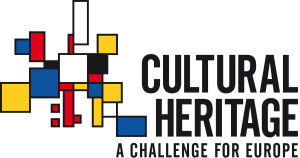
About
EnDOW (“Enhancing access to 20th Century cultural heritage through Distributed Orphan Works clearance”) is a collaborative project funded under Heritage Plus, a programme launched by agencies of 18 European countries and the European Commission as part of the Joint Programming Initiative in Cultural Heritage and Global Change. The project, which has been running from 2015 to 2018, had the main goal of tackling the orphan works problem by facilitating the process of right clearance for European cultural institutions engaged in digitization of material contained in their collections.
The orphan works problem
European cultural institutions are engaged in digitisation and making available online of works and artifacts contained in their collections. Europeana, the portal of European cultural heritage, gives access to almost 50 million digital objects from libraries, museums and archives. However, digitisation of 20th Century’s cultural heritage is undermined by the risk that copyright and related rights may still subsist in the works. When the copyright owner cannot be identified or located to ask permission, the cultural institution cannot legally digitize or make available the work. This is what is known as the “orphan works” problem.
What does the law say
Under the European Directive on Orphan Works, cultural institutions are allowed to make certain uses of those works if none of the rightholders could be identified or located after having carried out a diligent search. Legislations of each Member States determine the conditions under which such a diligent search must be carried out; in particular, national legislations determine which sources must be consulted for each category of work to locate the potential rightholders. So, the law provides for a solution of the orphan works problem. However, in practice the requirement to carry out a diligent search results in a complex and time-consuming exercise for which many cultural institutions lack expertise and resources. This discourages them from embarking in digitisation programmes.
The aim and purpose of EnDOW
EnDOW addressed the legal requirement of diligent search in 20 EU countries from both legal and practical perspectives. In collaboration with cultural institutions, it designed an online tool for determining the “orphan work” status of library, archive and museum material, according to the requirements of the European Directive on Orphan Works and the legislation of EU Member States (including the UK). The Diligent Search Tool is designed in user-friendly manner and is addressed to users with no professional knowledge on the complex mechanics of copyright law. In this respect, the Diligent Search Tool can be used by cultural institutions both to carry out diligent searches on their own and to “crowd-source” certain phases of this process, as a way to engage communities and reduce the costs of diligent search. The Tool is now operative and freely accessible online:
As part of the EnDOW project, a number of studies have been published on various aspects of the orphan works problem and the viability of engaging community of users to assist cultural institutions in doing diligent searches ( “crowd-sourcing”). These studies include legal and policy analysis, best practices and case-studies on the use of the Diligent Search Tool:
Partners
- CIPPM, Bournemouth University (Coordinator)
- CREATe, University of Glasgow
- IViR, University of Amsterdam
- ASK, Bocconi University, Milan
Additional external advise is provided by Kennisland (KL).

Project members
| Name | Institution | Role |
|---|---|---|
| Maurizio Borghi | CIPPM | Project Leader |
| Kris Erickson | CREATe & University of Leeds | Principal Investigator |
| Maria Lillà Montagnani | ASK | Principal Investigator |
| Aura Bertoni | ASK | Researcher |
| Maarten Zeinstra | KL | External Advisor |
| Marcella Favale | CIPPM | Researcher |
| Matej Gera | CIPPM | Researcher |
| Victoria Stobo | CREATe | Reseacher |
| Ronan Deazley | CREATe & Queens U Belfast | Researcher |
| Sukhpreet Singh | CREATe | Researcher |
| Claudy op Den Kamp | CIPPM | External Advisor |
| Flavia Guerrieri | ASK | Researcher |
| Vicky Breemen | IViR | Principal Investigator |
Past members
| Name | Insitutions | Role |
|---|---|---|
| Lucie Guibault | IViR | Principal Investigator (2015-2017) |
| Simone Schroff | IViR | Researcher (2015-2017) |
| Giacomo Tagiuri | ASK | Researcher (2015-2016) |
| Laura Zoboli | ASK | Researcher (2015-2016) |
| Margherita Bordignon | ASK | Researcher (2015-2016) |
Associate Partners
- Bibliothèque Nationale de Luxembourg
- National Records of Scotland
- British Film Institute
- MAXXI – National Museum of XXI Century Arts
- Research unit for Climatology and Meteorology applied to Agriculture
- Connected Digital Economy Catapult
- AIE – Associazione Italiana Editori
- Centre for Commercial Law and Financial Regulation, University of Reading
Advisory Board
| Name | Insitution |
|---|---|
| Patrick Peiffer | Bibliothèque Nationale de Luxembourg |
| Susan Corrigal | National Records of Scotland |
| Annabelle Shaw | British Film Institute |
| Margherita Guccione | National Museum of XXI Century Arts (MAXXI) |
| Paul Durrant | Connected Digital Economy Catapult |
| Stavroula Karapapa | Centre for Commercial Law and Financial Regulation, University of Reading |
| Maria Carmen Beltrano | Research unit for Climatology and Meteorology applied to Agriculture |
| Piero Attanasio | Associazione Italiana Editori (AIE) and ARROW |
| Cédric Manara | Google Inc. (personal title) |



